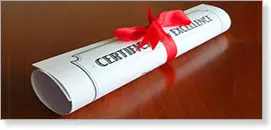Credentials Recognition

As engineering is a highly-skilled profession, credentials checking is strict and thorough. Engineers Australia is the body which will manage the recognition process for you. They have a good reputation for prompt service, often processing applications in as little as four weeks.
In this section, we provide a ‘big picture’ overview of the credentials recognition process for an engineer. Of course, we have not covered everything, but this should give you a basic understanding of the system. Please visit the Engineers Australia website for much more specific information.
Engineering occupation categories
Engineers Australia recognises 3 categories of occupation within the engineering field:
- professional engineer
- engineering technologist
- engineering associate
However, for migration purposes, they also have a category called ‘engineering manager’.
Recognizing your qualifications
Engineers Australia will assess you skills through either your accredited engineering qualifications, or Competency Demonstration Report (CDR).
1. Accredited engineering qualifications
There are 4 pathways for your accredited engineering qualifications:
a. Australian Qualifications
b. Washington Accord (for undergraduate professional engineering)
c. Sydney Accord (for engineering technologist programs)
d. Dublin Accord
a. Australian Qualifications
This is the pathway if you have an Australian undergraduate engineering qualification at the level of:
- professional engineer
- engineering technologist
- engineering associate
If you qualify, you complete the Australian Qualifications application form.
Australian Qualifications Assessment Fee – AUD$155 from outside Australia, or $170.50 including GST from inside Australia.
Please note: if your Australian engineering qualification is at the trade or technical level, you do not apply to Engineers Australia for your assessment. Your assessment will be done by the assessing authority stated in the government’s Skilled Occupation List.
The Washington Accord is an agreement between national engineering accreditation bodies.
It recognises undergraduate professional engineering programs ‘as equivalent’. To date the countries include:
|
|
You must check with your national accreditation body to ensure your degree is suitable for the Accord. If you qualify, you complete the Washington Accord application form.
Washington Accord Assessment Fee – AUD$310 from outside Australia, or $341 including GST from inside Australia.
If you qualification is not accredited under this agreement, you will submit a Competency Demonstration Report (CDR).
c. Sydney Accord
This agreement is between engineering accreditation bodies that recognise their engineering technologist programs ‘as equivalent’. To date the countries include:
|
|
Check with your country’s accreditation board to ensure your qualifications are acceptable. If you qualify, use the Sydney Accord accreditation application.
Sydney Accord Assessment Fee – AUD$310 from outside Australia, or $341 including GST from inside Australia.
If you qualification is not accredited under this Accord, you will submit a Competency Demonstration Report (CDR).
This agreement is between engineering accreditation bodies that recognise an accredited engineering associate qualification ‘as equivalent’. In Australia, this is equivalent to an Australian two-year Advanced Diploma. To date the countries include:
|
|
Check with your country’s accreditation board to ensure your qualifications are acceptable. If you qualify, use the Dublin Accord accreditation application.
Dublin Accord Assessment Fee – AUD$310 from outside Australia, or $341 including GST from inside Australia.
2. Competency Demonstration Report (CDR)
If you do not qualify under the ‘as equivalent’ agreements above, you will complete a Competency Demonstration Report (CDR).
The CDR demonstrates your knowledge and skills, and that you meet the competency standards for Australia.
This is a detailed process which we will not go into on our website. Please see further information on the CDR in this booklet.
Competency Demonstration Report application
Competency Demonstration Report Assessment Fee – AUD$620 from outside Australia, or $682 including GST from inside Australia.
The Application Process
Please note: if you are using a migration agent, Engineers Australia will only communicate with the agent who lodged your application, not you directly.
Once Engineers Australia received your application, they will post you a receipt within 5 to 7 working days. The receipt will give you your contact ID (CID) number. That will be the number you use to refer to for any follow-up.
If you have forgotten anything in your application, they will tell you in writing.
Once your application is successful, you will receive an Assessment Outcome Letter for Migration Purposes. There is no expiry on this latter – once you receive it it is good indefinately.
If your application is not successful, you have 12 months from the date of your assessment outcome letter to appeal the decision. There are two steps to doing, the first is the preliminary review which is an informal re-assessment. This is done free of charge. If you are not happy with the outcome from that process, you can then do a formal appeal, which will cost you $200.
Documentation
Your documentation must be certified to be true copies of the originals – you do not have to provide the originals.
If your documents are not in English you must provide certified copies of the original language documents, and the English language translation versions. The translations must be done by an authorised translator, and the translator cannot be the person to certify his stock in his documents.
English Skills Assessment
If you are from a non-English-speaking country, you must achieve a minimum of Band 6 in the four modules of the general or academic IELTS exam.
The original test report must be sent directly to Engineers Australia by the test centre – you cannot send it or provide certified copies. Your test result must be less than two years old.






